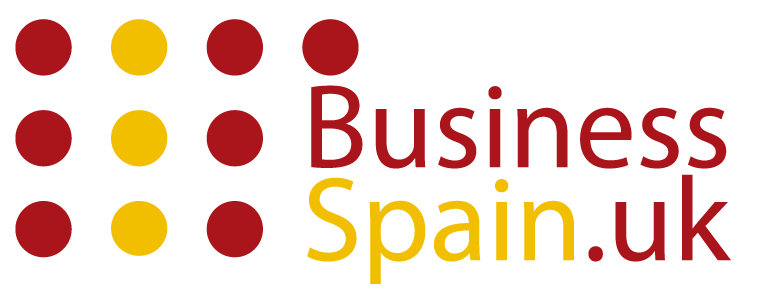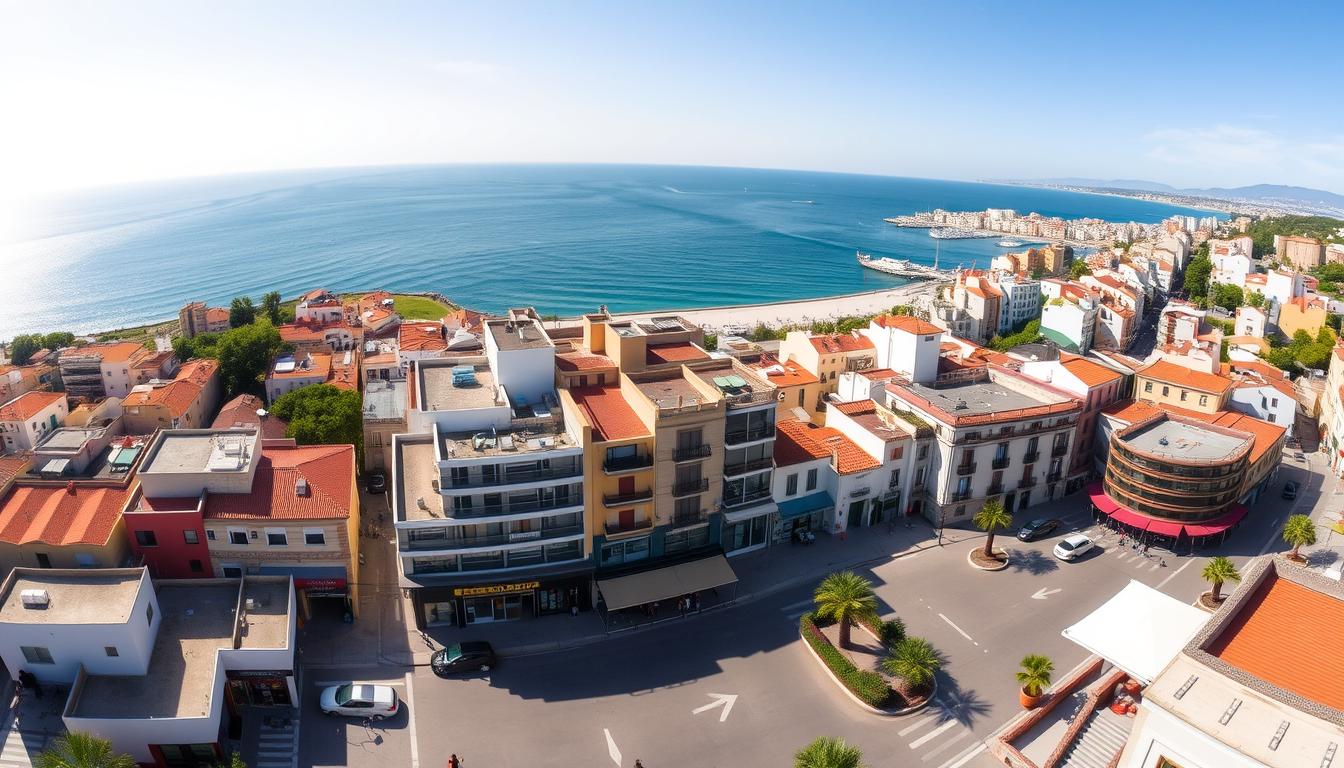Spain offers a compelling landscape for foreign entrepreneurs looking to establish their business footprint in Europe. With its favorable Mediterranean climate, vibrant expat communities, and a tourism industry that attracts millions annually, Spain presents numerous opportunities for foreigners to launch successful ventures. The country’s relatively affordable cost of living compared to other Western European nations further enhances its appeal as a business destination.
In this comprehensive guide, we’ve evaluated and ranked the top 10 small business ideas in Spain for foreigners based on market demand, startup costs, and legal accessibility for non-Spanish residents. Whether you’re seeking to leverage Spain’s tourism boom or tap into emerging digital markets, these business ideas offer promising pathways to entrepreneurial success in this dynamic European economy.
How We Evaluated These Business Ideas
Our selection methodology incorporates data from multiple authoritative sources to ensure you receive accurate, actionable information. We’ve analyzed statistics from Spanish business registries, aggregated reviews from established expat forums, and studied current industry trends to identify the most viable opportunities.
Each business idea has been evaluated based on the following criteria:
- Market Demand: Current and projected demand in the Spanish market, rated on a scale of 1-5
- Startup Investment: Average initial capital required to launch the business
- Breakeven Timeline: Estimated time to reach profitability based on current market conditions
- Legal Complexity: Ease of navigation through Spanish regulations for foreigners
- Expat Success Rate: Percentage of foreign entrepreneurs who report success in this sector
Our analysis also considers the unique advantages foreigners bring to the Spanish market, such as international connections, multilingual skills, and fresh perspectives that can differentiate their offerings in competitive sectors.
1. Tourism and Experience-Based Services

Feature Stats
- Average Startup Cost: €5,000 – €15,000
- Breakeven Time: 6-12 months
- Local Demand Score: 4.8/5
Rating Reviews
4.7/5 on Expatica Spain forums, with particularly high ratings for tour services that offer unique cultural experiences beyond typical tourist attractions.
Pros
- Low language barrier for English-focused tourism services
- Leverages your unique cultural perspective as a foreigner
- Flexible seasonal scaling options
- Can start with minimal infrastructure
Cons
- Seasonal fluctuations affect cash flow
- Increasing competition in popular tourist areas
- Requires liability insurance and proper licensing
Specifications
Tourism businesses can operate as an Autónomo (self-employed) initially, with the option to establish an S.L. (Limited Liability Company) as you grow. Required licenses include a general business license from the local municipality and specific tourism operator permits depending on your services.
Ready to start your tourism venture?
Get personalized guidance on establishing your tourism business in Spain’s thriving market.
2. Digital Marketing Agency for Spanish Businesses

Feature Stats
- Average Startup Cost: €2,000 – €8,000
- Breakeven Time: 3-8 months
- Local Demand Score: 4.7/5
Rating Reviews
4.6/5 on Barcelona Startups Hub, with reviewers highlighting the growing demand from Spanish businesses seeking international market expansion.
Pros
- Leverage your international perspective for Spanish businesses targeting global markets
- Low overhead costs with remote work possibilities
- High demand as Spanish businesses increase digital presence
- Recurring revenue potential through retainer contracts
Cons
- Some Spanish language proficiency required for client communication
- Need to understand local market nuances
- Competitive field requiring constant skill updates
Specifications
Digital marketing agencies typically start as Autónomo structures, with minimal licensing requirements beyond standard business registration. As your client base grows, transitioning to an S.L. offers better liability protection and tax advantages for scaling operations.
Launch your digital marketing agency
Get expert advice on positioning your digital marketing services for the Spanish market.
3. Language School or Translation Services

Feature Stats
- Average Startup Cost: €3,000 – €20,000 (depending on physical location needs)
- Breakeven Time: 8-14 months
- Local Demand Score: 4.5/5
Rating Reviews
4.5/5 on SpainExpat forums, with particularly strong reviews for specialized language services targeting business professionals and technical fields.
Pros
- Native language skills are highly valued
- Can start online with minimal investment
- Opportunity to serve both locals and expat communities
- Flexible business model (one-on-one, group classes, corporate training)
Cons
- Physical schools require significant initial investment
- Teaching certifications may be required for formal schools
- Competitive market in expat-heavy areas
Specifications
Language services can operate under the Autónomo structure for individual teachers or translators. Formal language schools require an S.L. structure and educational licensing from regional authorities. Teaching certifications like TEFL/CELTA are recommended for credibility.
Build your language business
Discover how to leverage your language skills into a thriving business in Spain.
4. E-commerce Specializing in Local Products

Feature Stats
- Average Startup Cost: €5,000 – €15,000
- Breakeven Time: 10-16 months
- Local Demand Score: 4.4/5
Rating Reviews
4.3/5 on European E-commerce Association, with highest ratings for businesses focusing on authentic Spanish products with international shipping capabilities.
Pros
- Ability to leverage connections in home country for export opportunities
- Can operate with minimal Spanish language skills
- Scalable business model with global potential
- Lower overhead than physical retail
Cons
- Requires understanding of international shipping regulations
- Need to build relationships with local suppliers
- Competitive online marketplace requires strong digital marketing
Specifications
E-commerce businesses typically operate as an S.L. for better credibility with suppliers and customers. You’ll need standard business registration, tax identification, and potentially import/export licenses depending on your product categories and target markets.
Launch your Spanish e-commerce business
Get guidance on building an e-commerce platform featuring authentic Spanish products.
5. Sustainable Tourism and Eco-Retreats

Feature Stats
- Average Startup Cost: €50,000 – €200,000 (property dependent)
- Breakeven Time: 24-36 months
- Local Demand Score: 4.6/5
Rating Reviews
4.7/5 on Sustainable Tourism Spain, with particularly strong reviews for retreats offering authentic experiences in rural areas.
Pros
- Growing market with increasing environmental consciousness
- Opportunity to purchase affordable rural properties
- Government incentives for sustainable tourism initiatives
- Higher profit margins than conventional tourism
Cons
- Higher initial investment requirements
- Complex permitting for rural properties
- Seasonal business requiring off-season strategy
Specifications
Eco-retreats typically require an S.L. structure due to the investment size. You’ll need tourism accommodation licensing, environmental certifications, and rural property permits. Many regions offer special incentives for sustainable tourism businesses in underdeveloped areas.
Create your eco-tourism venture
Learn about sustainable tourism opportunities and incentives in Spain’s beautiful rural regions.
6. Food and Beverage Concept

Feature Stats
- Average Startup Cost: €30,000 – €150,000
- Breakeven Time: 18-24 months
- Local Demand Score: 4.3/5
Rating Reviews
4.1/5 on Spanish Restaurant Association, with highest ratings for fusion concepts bringing international flavors with Spanish influences.
Pros
- Opportunity to introduce unique international concepts
- Strong food culture and dining-out habits in Spain
- Tourism creates consistent customer flow in many areas
- Potential to create a distinctive brand with expansion possibilities
Cons
- High initial investment and operating costs
- Complex regulations and licensing requirements
- Staffing challenges and management intensity
Specifications
Food businesses require an S.L. structure in most cases. You’ll need food handling licenses, health department approvals, liquor licenses (if applicable), and specific municipal permits. Staff must have food safety certifications, and regular inspections are mandatory.
Bring your culinary vision to Spain
Get expert guidance on navigating Spain’s food business regulations and market opportunities.
7. Real Estate Services for International Clients

Feature Stats
- Average Startup Cost: €8,000 – €25,000
- Breakeven Time: 12-18 months
- Local Demand Score: 4.2/5
Rating Reviews
4.3/5 on International Property Investors Association, with strong reviews for agencies specializing in helping foreign buyers navigate the Spanish property market.
Pros
- Natural client base from your home country and international networks
- High commission potential on property sales
- Opportunity to offer complementary services (property management, relocation)
- Growing market with Spain’s Golden Visa program
Cons
- Requires real estate licensing and regulatory compliance
- Competitive market in popular expat areas
- Need for Spanish language skills for legal documentation
Specifications
Real estate agencies typically operate as an S.L. You’ll need to obtain a real estate agent license, which may require recognized qualifications or partnering with a licensed Spanish agent. Professional liability insurance is essential, and you should be familiar with Spain’s property laws.
Build your international real estate business
Learn how to establish a real estate agency serving international clients in Spain’s dynamic property market.
8. Wellness and Health Services

Feature Stats
- Average Startup Cost: €15,000 – €80,000
- Breakeven Time: 14-20 months
- Local Demand Score: 4.1/5
Rating Reviews
4.2/5 on European Wellness Association, with highest ratings for innovative concepts combining traditional and modern approaches.
Pros
- Growing health consciousness among locals and tourists
- Opportunity to introduce international wellness concepts
- Spain’s climate supports year-round wellness activities
- Potential for high-value service offerings
Cons
- Professional certifications often require validation in Spain
- Health-related services face strict regulations
- May require significant equipment investment
Specifications
Wellness businesses can operate as Autónomo for individual practitioners or S.L. for larger centers. Professional qualifications need to be validated through Spain’s education ministry. Health-related services require specific licensing depending on the services offered, and insurance is mandatory.
Create your wellness business in Spain
Get guidance on establishing a successful wellness center or practice in Spain’s growing health market.
9. Tech Startup or Remote Development Team

Feature Stats
- Average Startup Cost: €10,000 – €50,000
- Breakeven Time: 18-30 months
- Local Demand Score: 4.3/5
Rating Reviews
4.0/5 on Barcelona Tech City, with strong reviews for startups leveraging Spain’s growing tech ecosystem and talent pool.
Pros
- Growing tech hubs in Barcelona, Madrid, and Valencia
- Lower operating costs than other European tech centers
- Access to EU markets and funding
- Strong talent pool with competitive salaries
Cons
- Complex bureaucracy for tech startups
- Venture capital ecosystem less developed than other EU hubs
- May require significant initial investment
Specifications
Tech startups typically operate as an S.L. or the newer S.L.N.E. (New Enterprise Limited Company) which offers some advantages for innovative businesses. Spain offers various incentives for tech companies, including tax benefits for R&D activities and startup visa programs for entrepreneurs.
Launch your tech venture in Spain
Discover how to leverage Spain’s growing tech ecosystem for your startup or development team.
10. Import/Export Business

Feature Stats
- Average Startup Cost: €10,000 – €40,000
- Breakeven Time: 12-24 months
- Local Demand Score: 4.0/5
Rating Reviews
3.9/5 on Spanish Chamber of Commerce, with highest ratings for businesses connecting Spanish products with international markets.
Pros
- Leverage connections between Spain and your home country
- Spain’s strategic location as gateway to Europe, Africa, and Latin America
- Strong manufacturing and agricultural sectors with export potential
- EU membership simplifies trade within European markets
Cons
- Complex customs regulations and documentation
- Requires understanding of international trade laws
- May need significant working capital for inventory
Specifications
Import/export businesses typically operate as an S.L. You’ll need specific import/export licenses, customs registration, and potentially industry-specific certifications depending on your product categories. Understanding VAT regulations for international trade is essential.
Build your international trade business
Get expert guidance on establishing an import/export business leveraging Spain’s strategic position.
Understanding the Spain Business Visa for Foreigners
Starting a business in Spain as a foreigner typically requires obtaining the appropriate visa and residency permits. The most common pathway is through the Entrepreneur Visa (Visa de Emprendedor), part of Spain’s Law 14/2013 designed to support internationalization and attract foreign investment.
Key Requirements for Spain’s Entrepreneur Visa
- Business Plan: A detailed business plan demonstrating innovation and economic interest for Spain
- Investment Proof: Evidence of sufficient investment capital for your business concept
- Clean Criminal Record: From countries of residence for the past 5 years
- Health Insurance: Private health insurance coverage in Spain
- Sufficient Funds: Proof of financial means to support yourself during initial business phases
The initial entrepreneur visa is valid for one year, after which you can apply for a residence permit valid for two years, renewable for additional two-year periods. After five years of legal residence, you may be eligible to apply for permanent residency.
Alternatively, investors purchasing property worth €500,000 or more can apply for Spain’s Golden Visa program, which offers a faster path to residency and allows for business activities.
Need help with your Spain business visa?
Get expert guidance on navigating Spain’s visa requirements for entrepreneurs and investors.
Autónomo vs. S.L.: Choosing the Right Business Structure
Autónomo (Self-Employed)
The Autónomo status is Spain’s equivalent of being self-employed or a sole proprietor. It’s the simplest and most affordable way to start a business in Spain, making it popular among freelancers and small business owners.
Key Features:
- Setup Cost: Approximately €50-€100
- Personal Liability: Unlimited (personal assets at risk)
- Taxation: Progressive personal income tax rates
- Social Security: Mandatory monthly payments regardless of income
- Accounting: Simplified requirements for small operations
S.L. (Sociedad Limitada)
The S.L. is Spain’s limited liability company structure, offering better protection and credibility for larger operations or businesses with significant risk exposure.
Key Features:
- Setup Cost: Approximately €3,000-€4,000
- Minimum Capital: €3,000
- Personal Liability: Limited to invested capital
- Taxation: Corporate tax rate (typically 25%)
- Accounting: More complex requirements and annual filings
“For most foreigners starting small businesses in Spain, beginning as an Autónomo offers the fastest and most cost-effective entry point. As your business grows and risk exposure increases, transitioning to an S.L. structure provides better protection and potential tax advantages.”
Need help choosing the right business structure?
Get personalized advice on whether Autónomo or S.L. is right for your specific business in Spain.
Best Cities in Spain for Startups and Small Businesses
Barcelona

Startup Score: 4.8/5
Barcelona has emerged as Spain’s premier startup hub, with a vibrant international community, excellent infrastructure, and strong support networks. The city hosts numerous tech events, accelerators, and co-working spaces.
Best For: Tech startups, digital nomads, creative industries, tourism ventures
Madrid

Startup Score: 4.6/5
As Spain’s capital, Madrid offers access to major corporations, government institutions, and the country’s largest consumer market. The city provides excellent transportation connections and a business-friendly environment.
Best For: Professional services, corporate B2B, finance, larger enterprises
Valencia

Startup Score: 4.3/5
Valencia offers a lower cost of living than Barcelona or Madrid while maintaining excellent quality of life. The city has a growing startup ecosystem, good infrastructure, and a strategic Mediterranean location.
Best For: Lifestyle businesses, food ventures, sustainable startups, e-commerce
Málaga

Startup Score: 4.1/5
Málaga has transformed into a technology hub on the Costa del Sol, with initiatives like Málaga TechPark attracting international companies. The city offers excellent quality of life and a growing expat community.
Best For: Tech companies, tourism services, real estate, wellness businesses
Bilbao

Startup Score: 3.9/5
Bilbao offers a strong industrial base and excellent connections to northern Europe. The city has undergone significant urban renewal and offers strong support for industrial and manufacturing ventures.
Best For: Industrial startups, manufacturing, engineering services, creative industries
Seville

Startup Score: 3.8/5
Seville combines rich cultural heritage with a growing business ecosystem. The city offers lower operating costs and a strategic location for businesses targeting southern Spain and northern Africa.
Best For: Tourism services, cultural businesses, agricultural ventures, traditional crafts
Find the perfect Spanish city for your business
Get personalized recommendations on the best location for your specific business type and goals.
Conclusion: Your Path to Business Success in Spain
Spain offers a wealth of opportunities for foreign entrepreneurs looking to establish businesses in a vibrant European market. From leveraging the country’s tourism appeal to tapping into emerging sectors like sustainable tourism and digital services, the potential for success is significant with the right approach and preparation.
The top 10 small business ideas we’ve explored represent diverse entry points into the Spanish market, each with its own advantages, challenges, and potential returns. When selecting the right opportunity for your entrepreneurial journey in Spain, consider your personal skills, investment capacity, language abilities, and long-term goals.
Key Takeaways for Business Success in Spain
- Understand the legal requirements for your specific business type and obtain proper licensing
- Consider starting as an Autónomo for lower initial costs, with plans to transition to an S.L. as you grow
- Research location carefully—different Spanish regions offer varying advantages and market opportunities
- Leverage your unique perspective and international connections as competitive advantages
- Build relationships with local partners who understand the Spanish business environment
- Invest time in understanding Spanish business culture and consumer preferences
Starting a business in a foreign country presents challenges, but Spain’s welcoming business environment, growing economy, and supportive expat communities create a foundation for entrepreneurial success. With careful planning, market research, and the right local support, your Spanish business venture can thrive.
Ready to start your Spanish business journey?
Get personalized guidance on launching your business in Spain from our team of experts who understand the unique challenges and opportunities for foreign entrepreneurs.







